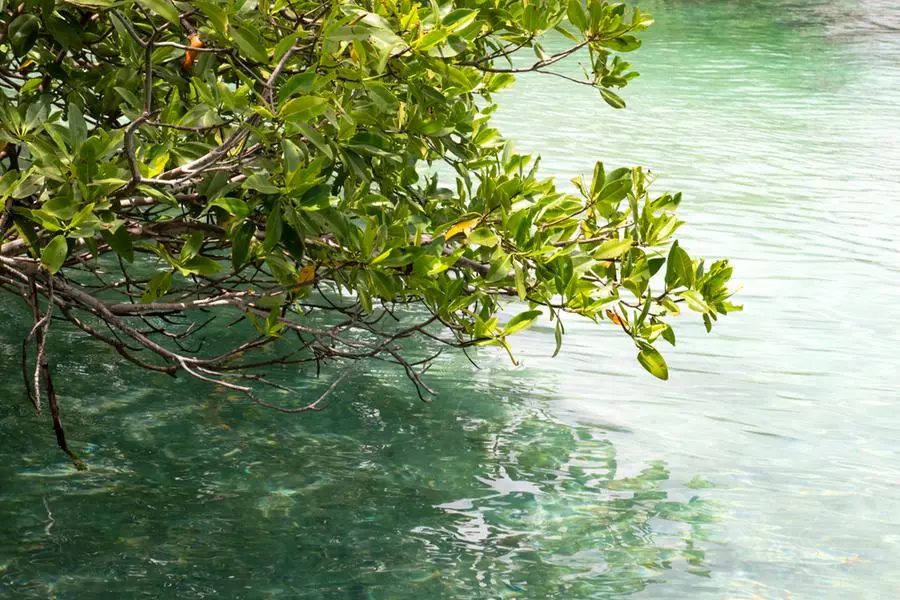PHOTO
Dubai -- Saudi Arabian Mining Company (Ma’aden) signed a memorandum of understanding with the Royal Commission for Jubail and Yanbu to establish a mangrove park in the Kingdom, supporting carbon sequestration and biodiversity preservation.
The agreement was signed by Ma’aden CEO Robert Wilt and Royal Commission for Jubail and Yanbu CEO Mahmood Al Theeb, in the presence of Minister of Environment, Water and Agriculture Abdulrahman Al-Fadley, Minister of Industry and Mineral Resources Bandar Alkhorayef, and Vice Minister for Mining Affairs Khalid Al-Mudaifer at the Saudi Green Initiative (SGI) which took place during the COP28 climate summit in Dubai.
Under the agreement, Ma’aden and the Royal Commission for Jubail and Yanbu will develop a mangrove park and support planting initiatives on Gurmah Island in Jubail, which houses a rich natural mangrove habitat.
The two parties will also cooperate on research initiatives relating to mangrove planting and ecosystem health and will develop local community programs that support ecosystem restoration and improve environmental awareness.
"This partnership is focused on preserving the Kingdom’s unique natural environment. Mangroves provide one of the most effective natural carbon-capture ecosystems and our ability strategy provides a roadmap towards restoring and enhancing the biodiversity of our coastline, in line with Ma’aden’s vision for sustainable growth in Saudi Arabia," Wilt said.
According to Al Theeb, “Our partnership with Ma’aden will continue to preserve and expand mangrove ecosystems in Jubail, a key feature of our region’s natural environment.
Together we will develop impactful initiatives that benefit the local community and contribute to the Kingdom’s sustainability objectives.”
Ma’aden also launched a dedicated mangrove plantation strategy during SGI that aims to protect existing forests, restore degraded areas and contribute to carbon reduction and biodiversity enhancement. The company has committed to planting 10 million terrestrial trees and 10 million mangroves by 2040, in line with its ambitions as an environmental, social, and governance (ESG) leader to be carbon neutral by 2050.
The strategy supports the Saudi Green Initiative’s target to plant 100 million mangroves in Saudi Arabia by 2030, which will offset around 96 million tons of carbon emissions and help to stabilize the Kingdom’s coastline ecosystems.





















